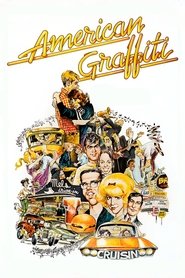You know that first act of seemingly every David Lynch movie and TV series that depicts a wholesome, idyllic 1950s America before some ugly and morally cancerous truth is revealed to be lurking just behind it… and is possibly propping up the surface-level fantasy to begin with? Well, this is basically the two-hour version of those first few scenes.
American Graffiti was more than a little underwhelming. Despite the screenplay's frequent allusions to sex and the cloying and antiseptic surf soundtrack crooning creepily about sixteen-year-old girls, it feels entirely sexless in tone, with the characters just going through the motions of growing up. This seems to be replicated within the script itself: for instance, the drag race at the end (cribbed from Rebel Without a Cause?) wasn't impactful even for those involved, inadvertently mirroring the consequence-free life of privilege that permits the characaters to, inter alia, own an expensive muscle car in their teens.
It's not by a long chalk an awful movie, but it only becomes interesting in the broader context of George Lucas's later films. Is difficult to decide whether Lucas' severe case of arrested development (the sexless affect, the adolescent male obsession with 'cool' cars, the remaking of old tv shows, the fantasy of having no parents to tie you down, the invisibility of class & race, the lazy black-and-white morality and the general inability to see anything beyond the mind of a teenage boy) is simply borne out of his naïveté about the world, or if there is something more unhealthy lurking in his films' obsession with his quote-escapist-unquote narratives that don't have to deal with the Civil Rights Act, feminism, Vietnam, etc. etc. As John Lahr wrote in the London Review of Books, "Nobody ever went broke selling Americans forgetfulness," and Lucas is a billionaire.
It is interesting that it's Steven Spielberg, a frequent collaborator of Lucas, who is usually chided for being the director who best embodies the role of "a Peter Pan figure, a kid who played safe and never grew up" — indeed, Martin Amis once said that Spielberg's beard "looks like a stick-on afterthought, a bid for adulthood and anonymity." Yet surely this applies better to Lucas? The grim 'where are they now' titles at the end of American Graffiti might suggest the film genuinely is Lucas' nostalgic gaze back towards the white-bread 1950s, but given that these are quite literally tacked onto the end the movie, it might be more accurate to say that George Lucas has never left.
It's only when the film's closing titles spell out the dates awaiting its four principal characters that one notices the presence of Significant Statement, which has been lurking all along behind the casual, impressionistic surfaces.
— Jan Dawson (Sight & Soud, 1974)

